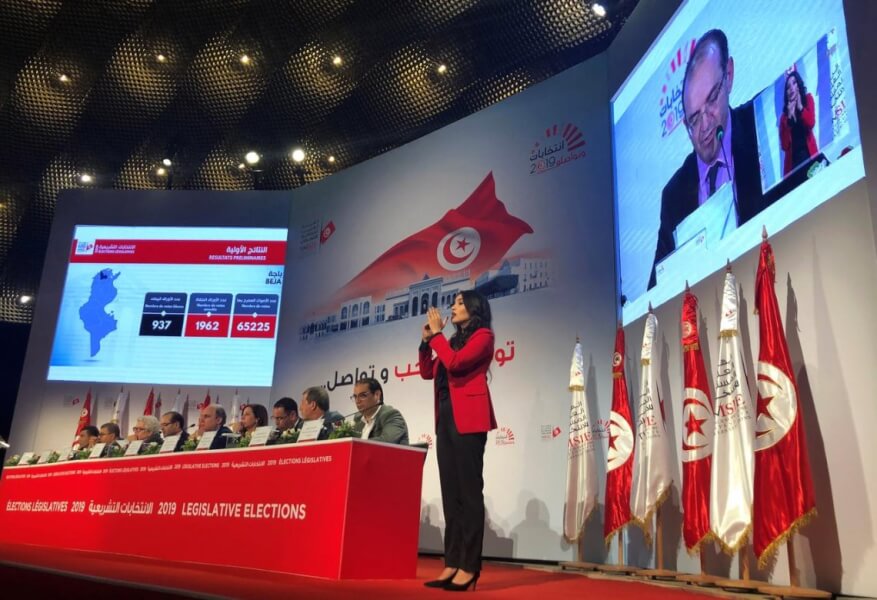In the absence of a government by March 15, President Kais Saied will have the opportunity to dissolve Parliament and call early elections.
The political crisis is worsening in Tunisia after the rejection by the country’s main parties, Ennahdha and Qalb Tounes, of the list of the future cabinet, unveiled on Saturday evening by Prime Minister-designate Elyes Fakhfakh.
The decision of these two parties, which form the majority in the Assembly of People’s Representatives (ARP), makes the fate of the new government uncertain and the organization of early parliamentary elections more and more likely. “At the insistence of Elyes Fakhfakh, responsible for forming the government, to reject the idea of a government of national unity, Ennahdha decided to withdraw,” said the president of the council of Choura, Abdelkrim Harouni.
The Rached El-Ghanouchi party demands a government of national unity including the second party in parliament, Qalb Tounes, a party led by media magnate Nabil Karoui, but excluded from negotiations. “Ennahdha decided not to participate or to vote for confidence in a government that would have been too weak without the participation of Qalb Tounes,” Abdelkarim Harouni, quoted by the media, said again yesterday. “Mr. Fakhfakh can still negotiate, but he does not have many days left, ”he continued, raising the possibility that the president, Kaïs Saïed, could appoint a new head of government.
Yesterday, the spokesman of the Islamist party, Imed Khemiri, in turn, called on Fakhfakh to withdraw his government to carry out a new dynamic based on “the integration of political forces and on the search for a new balance for the obtaining a government which can represent the parties and their real weight in the Assembly of People’s Representatives ”. For its part, the Qalb Tounes party has said it will not trust the new government.
The party, which has 38 seats in parliament, recalled in a statement on Saturday evening that it had decided to “camp in the opposition”, reaffirming that it will not be part of the next government coalition, said Qalb Tounes. In a publication on his Facebook account, Nabil Karoui said: “We are not concerned by the formation of the government, and refuse the approach followed in this context.” Faced with this situation of total blockage, Mr. Fakhfakh reacted by holding the party of Ennahdha responsible for the current blockage. He said that the Islamist party’s decision put Tunisia in a complicated situation.
“Ennahdha’s decision puts the country in a difficult situation which forces us to study the legal and constitutional possibilities,” said the Prime Minister. “We decided with the President of the Republic to take advantage of the remaining constitutional deadlines to seek a way out,” he added, hinting that the list could notably be modified.
Mr. Fakhfakh was appointed on January 20 by the president, Kaïs Saïed, to form within a month a cabinet likely to convince the majority of deputies. In the absence of a government by March 15, President Kaïs Saïed will have the possibility of dissolving Parliament and calling for early elections, organized within 3 months.














